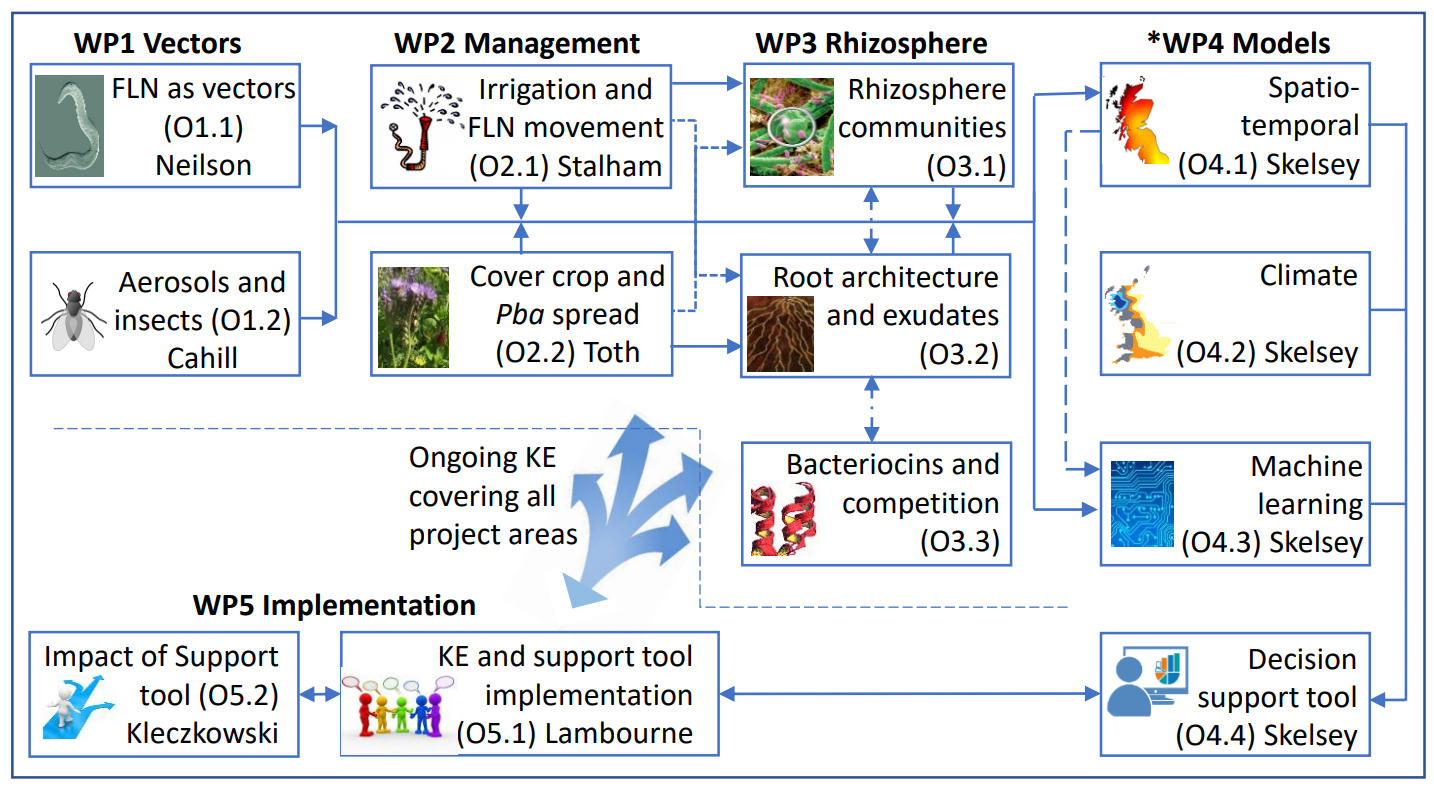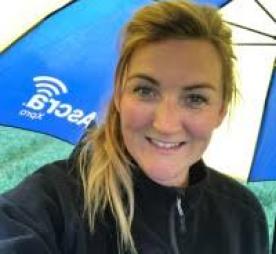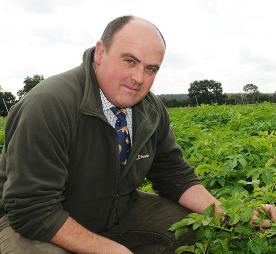About Us
Pectobacterium atrosepticum is one of the most economically damaging bacterial plant pathogens in the UK, causing blackleg disease of potato plants and soft rot of tubers. The priority of project DeS-BL (Building a Decision Support Tool for Potato Blackleg Disease) is to develop an integrated suite of decision support tools for farmers, agronomists and policymakers to facilitate management of the disease.
Our Objectives
To identify new ways to control blackleg disease through research undertaken in a number of work packages (any one of which could offer a new breakthrough in the treatment of blackleg), and then to use data from them, combined with other unique datasets, to develop a decision support tool(s) for use by industry.
Work Package 1
- Role of free-living nematodes (FLN) on potato plant infection - below ground
- Role of insects on potato plant infection - above ground
Work Package 2
- Influence of irrigation on FLN and the consequences for blackleg development
- Role of cover crops in a rotation to mitigate blackleg
Work Package 3
- Effect of irrigation, cover crops, root architecture and root exudates on Pectobacterium / other rhizosphere microbes
- Identification of bacteriocins from soil and rhizosphere microbes for use in biocontrol
Work Package 4
- Trends in blackleg incidence over space and time influenced by a range of data sets using ArcGIS
- Effect of climate change on future distributions of Pectobacterium and FLN in GB
- Identify drivers of blackleg outbreaks and develop a model to forecast risk of occurrence
- Integrate project data into a simple decision support tool for predicting blackleg risk
Work Package 5
- Co-construct ideas with policy and industry and discuss findings from the project
- Examine the impact of implementing the decision support tool

Schematic showing main connections between works packages and objectives
Meet the Team
Project Leader





















